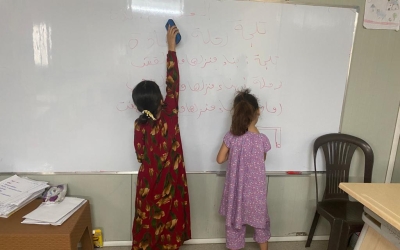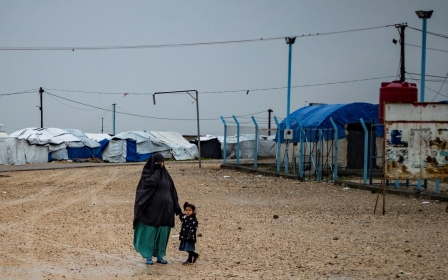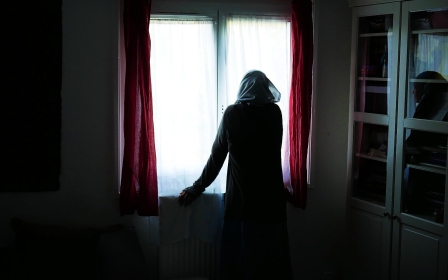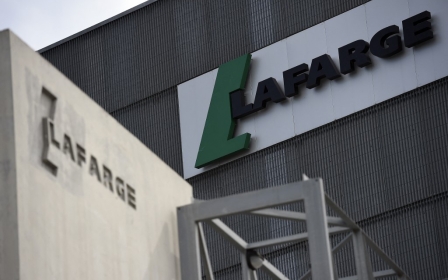France: Algerian woman who moved to IS-controlled Raqqa as minor faces deportation
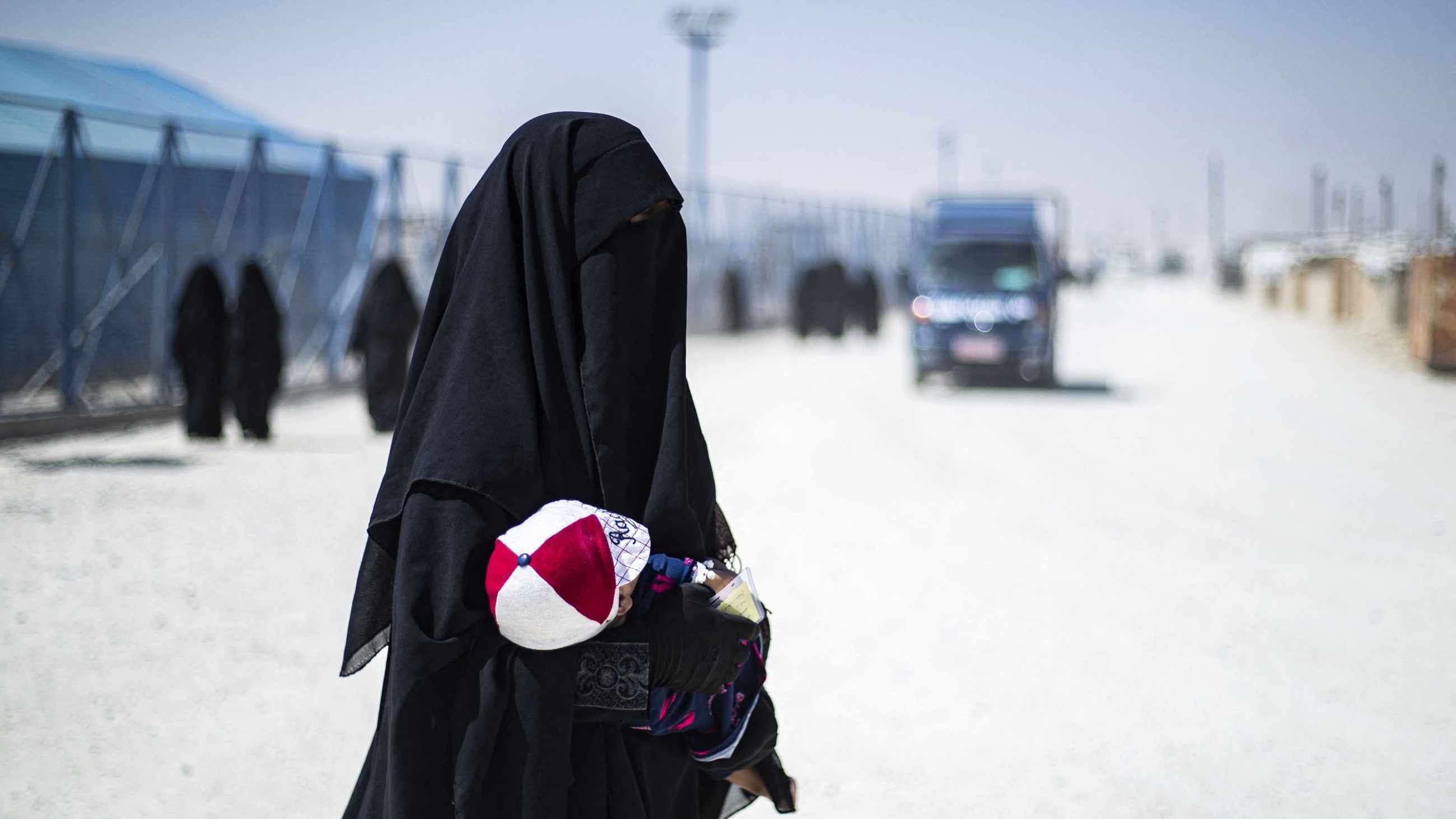
France has launched deportation proceedings against an Algerian woman repatriated from Syria who was taken to the war-torn country at the age of 15 by her family who had pledged allegiance to the Islamic State (IS) group.
The 24-year-old woman, known as Sana, a pseudonym used to protect her identity, was born and raised in France and is of Algerian origin.
She would have been able to take up French nationality at the age of 13 but was not allowed to do so by her mother, who was a supporter of IS.
Sana was married to a Belgian member of the armed group in Syria and was later imprisoned by members of the Syrian Democratic Forces (SDF) at a camp in northeastern Syria.
The woman, who has two young daughters, was repatriated to France in January 2023 after four years in detention.
New MEE newsletter: Jerusalem Dispatch
Sign up to get the latest insights and analysis on Israel-Palestine, alongside Turkey Unpacked and other MEE newsletters
As with others associated with IS who have been repatriated, French authorities have not launched criminal proceedings against Sana.
Senior French civil servant, Georges-Francois Leclerc, who attended a hearing in Lille on the planned deportation said he considers the woman to be a “serious threat to the French republic".
Marie Dose, the attorney representing Sana, told Middle East Eye: “I had prepared her for prison, but not for this, not for deportation.”
Her client was due to attend the deportation commission meeting on Wednesday but was instead hospitalised after an apparent anxiety attack. “It’s too much pressure for her” Dose said.
Sana, who had lived in France her entire life until her move to Syria, said she was unfamiliar with Algeria.
“I didn't imagine the worst, I didn't know it had come to this," Dose continued.
Deportation case
Anti-terrorism officials in France are familiar with Sana’s case and her age at the time of her move to Syria was reportedly a factor in their decision not to prosecute her.
The teenager was essentially under the control of her mother and uncle, who were totally committed to the ideology of the Islamic State.
In 2014, when the pair took her to Syria, she would not have been able to give legal consent to the decision.
Sana was married to a Belgian member of IS immediately upon her arrival in Raqqa, which was formerly the group’s de facto capital, and gave birth to her first child at the age of 16. At 19, she had her second daughter.
"A forced marriage at 15 is rape," her lawyer said.
Sana told French investigators that she had tried to flee the group but had been prevented from doing so by her mother.
In March 2019, she was arrested and subsequently detained by SDF forces, a militia made up primarily of Kurdish groups and some Arab factions, which is backed by the US.
Speaking at the deportation hearing on Wednesday, Leclerc, who serves as the prefect of France’s northern region and represents the Ministry of the Interior, stated that the “law is the law”.
"You can be the victim of a terrible childhood but still be a threat," Leclerc said, elaborating that Sana’s view of Shia Muslims as “sick” was evidence of her radicalisation.
Sana’s two daughters, who were born in Syria and are not French, are not mentioned in the court proceedings and are currently being cared for by a foster family.
“The girls are happy to be reunited with their mother during mediated visits," said Leclerc. "If [Sana] can be a good mother in France, she can be a good mother in Algeria,” he continued.
"How did it come to this?" said Marie Dose. “We're failing at everything. What Sana told me is that her mother has been waiting for this. She's the one who's rejoicing right now.”
Sana’s mother is still being held at a prison camp in northeastern Syria after she refused to be repatriated to France, holding firm to her support for the ideology of Islamic State.
The deportation committee is due to give its verdict on Sana on 27 September.
This article is available in French on Middle East Eye French edition.
Middle East Eye delivers independent and unrivalled coverage and analysis of the Middle East, North Africa and beyond. To learn more about republishing this content and the associated fees, please fill out this form. More about MEE can be found here.


